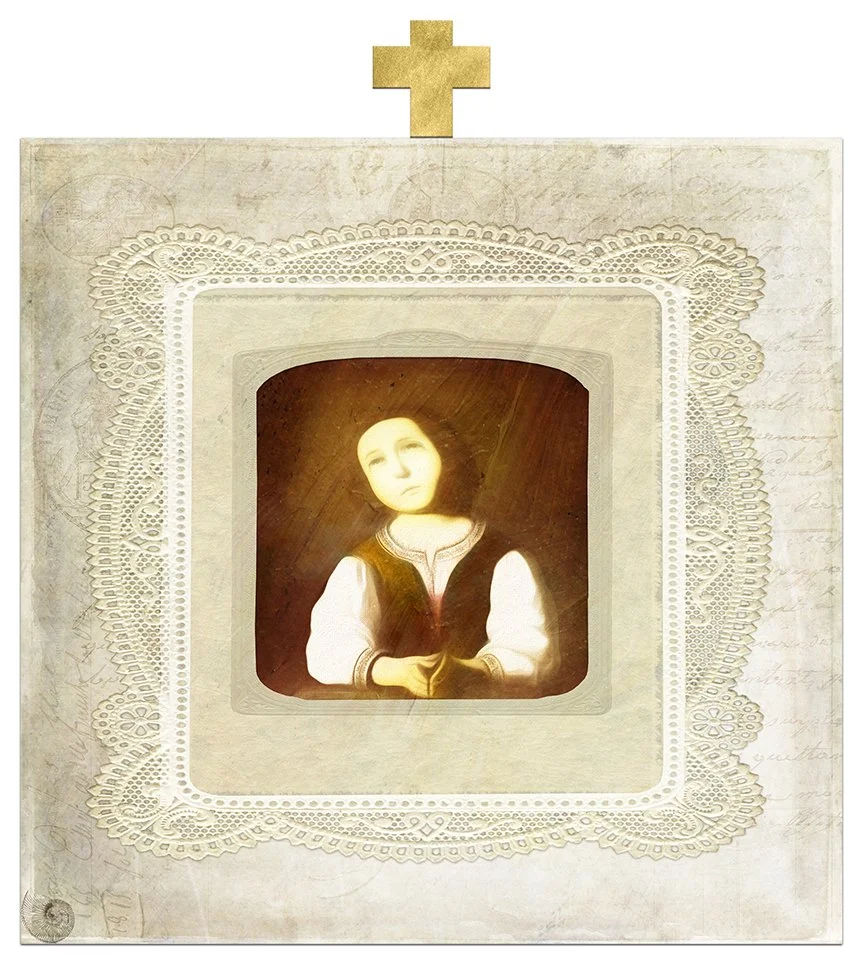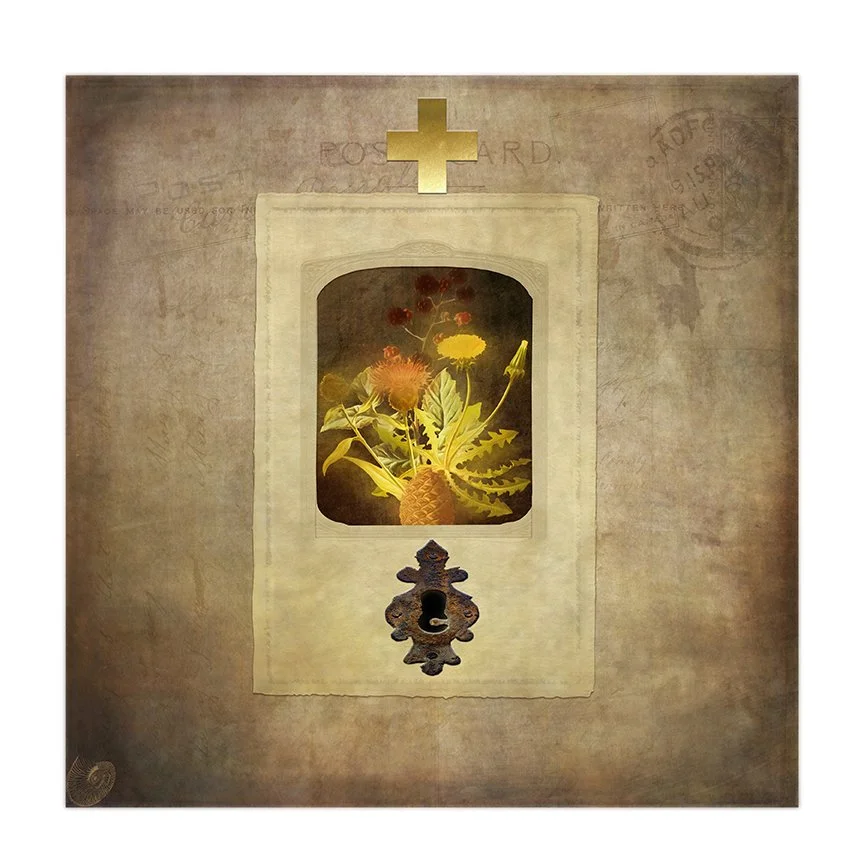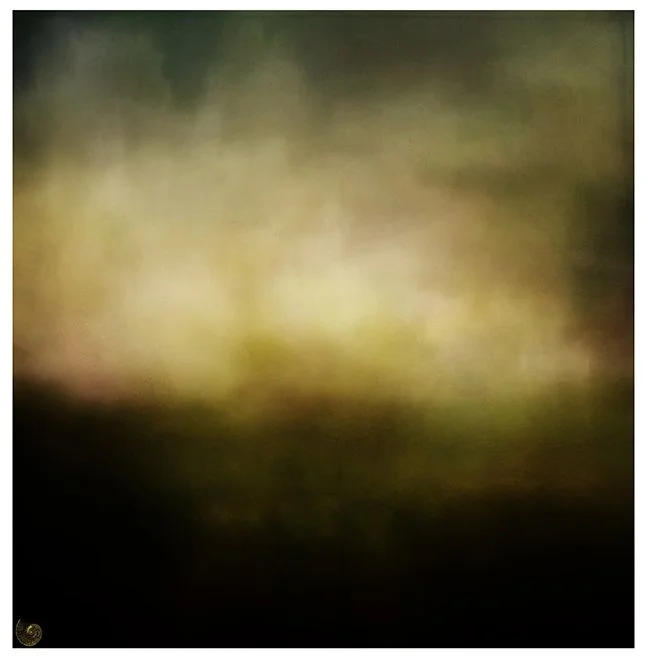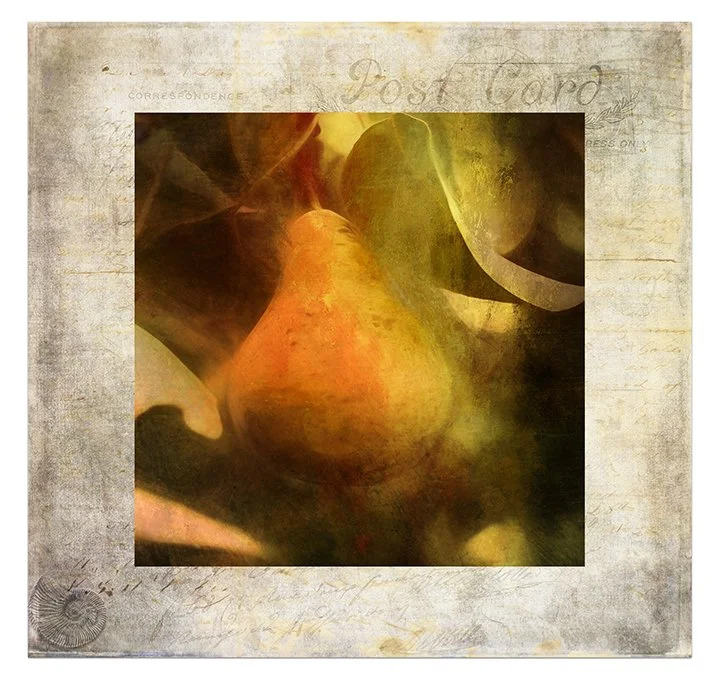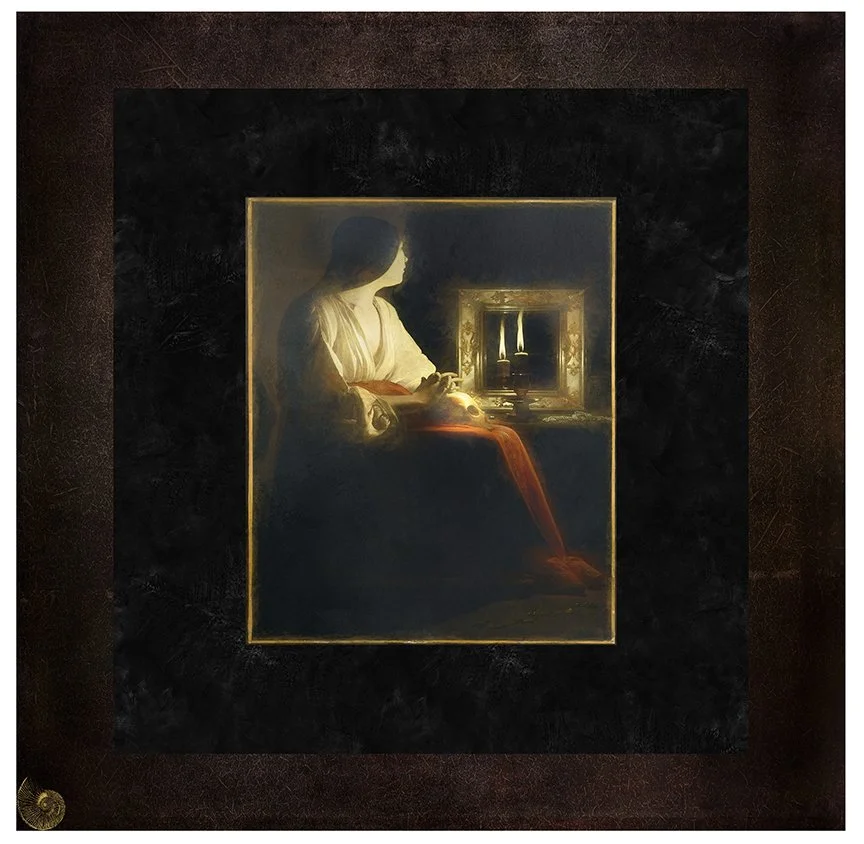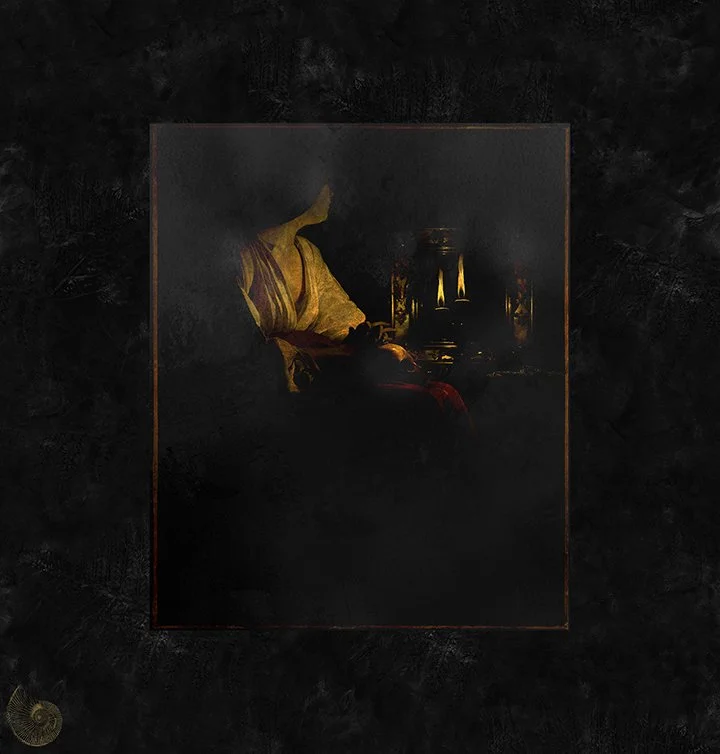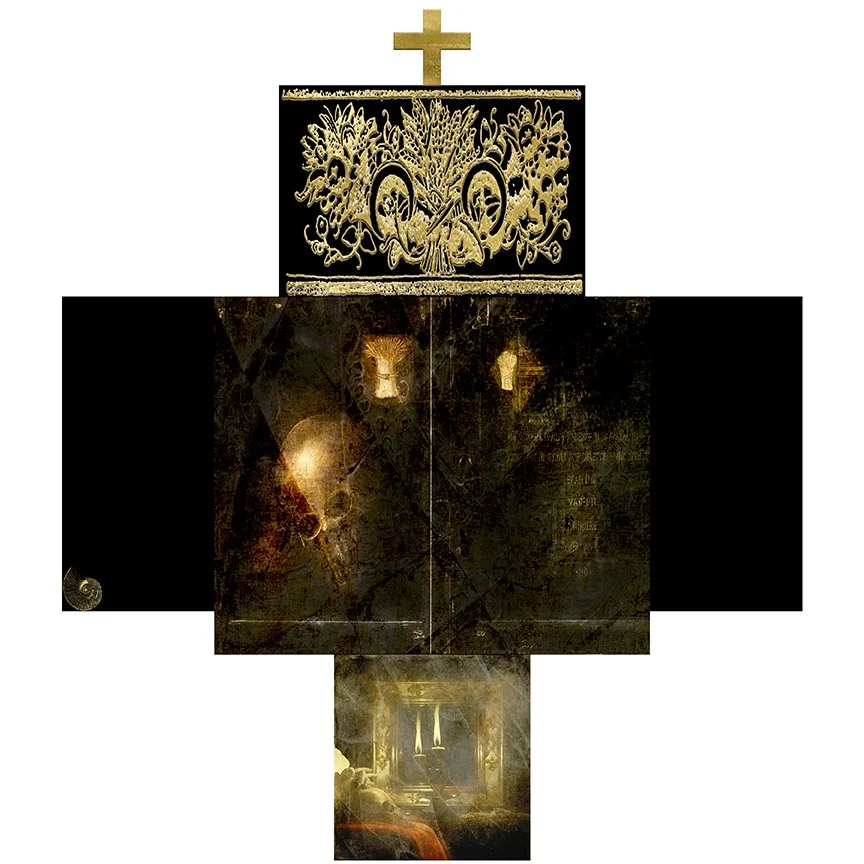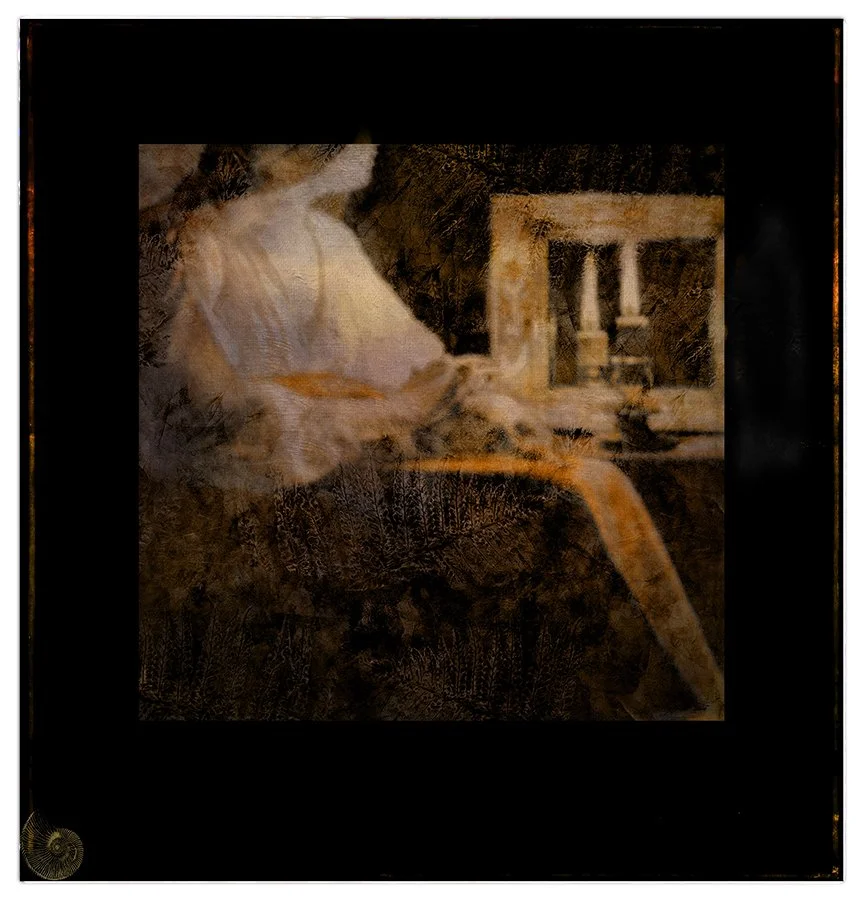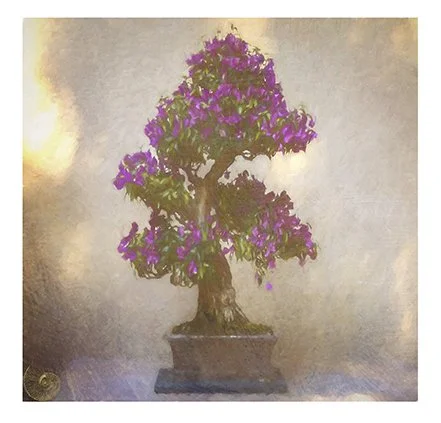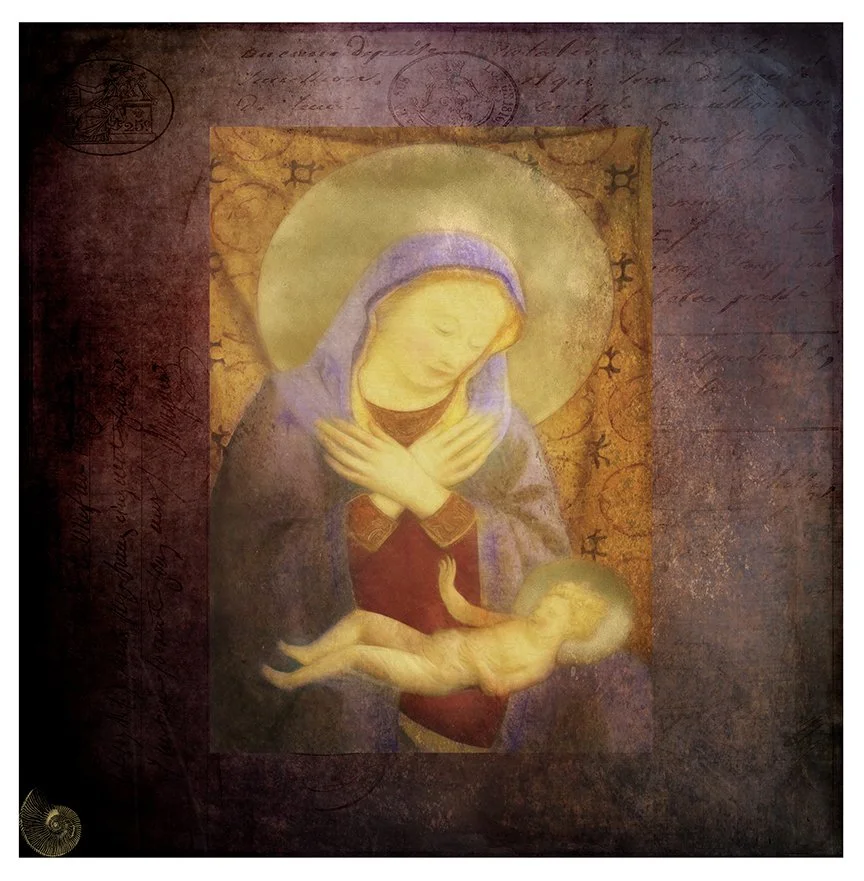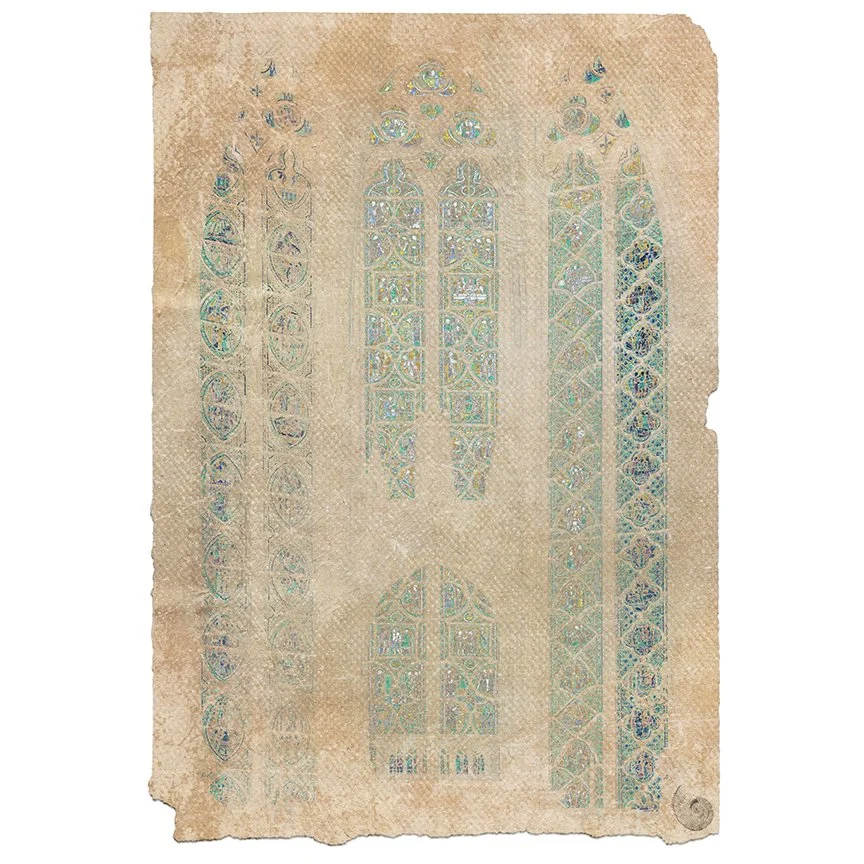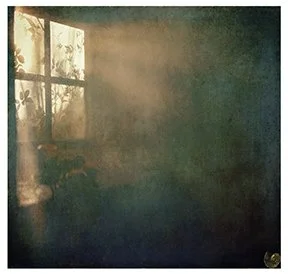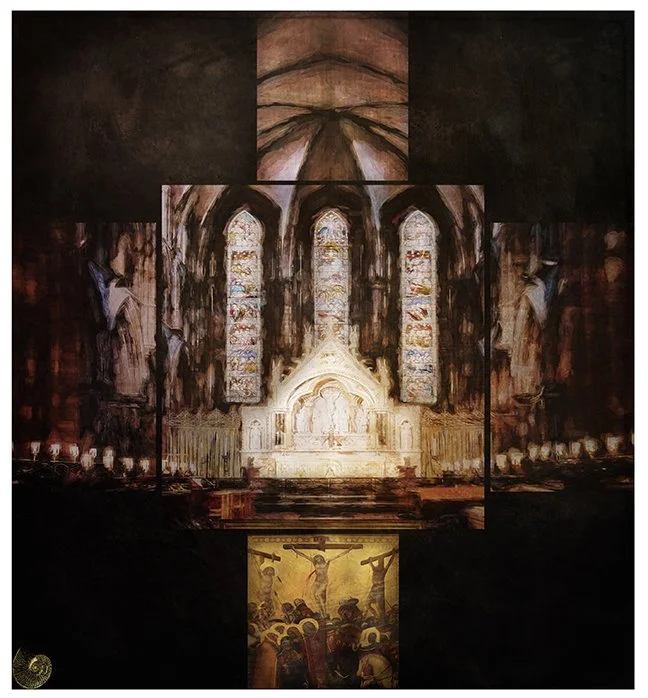Poor in Spirit
Original Image: The Young Virgin, ca. 1632-33, Francisco de Zurbaran; Metropolitan Museum Open Access; Public Domain; additional artwork and collage by Juliette Pierce Kent
At that time the disciples came to Jesus and said, “Who then is greatest in the kingdom of heaven?” And He called a child to Himself and set him among them, and said, “Truly I say to you, unless you change and become like children, you will not enter the kingdom of heaven.” (1)
When St. Bernard of Clairvaux was asked what are the three most important aspects of spiritual life, he answered: humility, humility, and humility. Faith involves simplicity of heart and gratitude for the small things of the world that bless each ordinary hour.
Blessed are the poor in spirit
for theirs is the kingdom of God. (2)
This poverty of spirit, this humility and trust, is the source of the “three-fold mystery of faith, hope and charity. It is the doorway through which we must pass to become authentic human beings. Only through poverty of spirit do we draw near to God; only through it does God draw near to us.” (3)
“Poverty of spirit is the meeting point of heaven and earth, the mysterious place where God and humanity encounter each other, the point where infinite mystery meets concrete existence.” (4)
Unless a grain of wheat
falls into the earth and dies,
it remains alone;
but if it dies, it bears much fruit. (5)
There is a death before rebirth in Christ; it is not an instant but a way. Death and new life intertwine for a time, or a season, or an age. Mourning the old is mixed with wonder and then, sometimes, surprise.
But grieving is part of it; the strange sense of the loss of something old and contrary remains: it was troublesome, perverse to the soul, though all too familiar. What was alien to the heart is being cast out; but it has its charms and it clings.
In all this, though, the Lord has His own time, of which the soul knows nothing. Or maybe sometimes the soul senses the long, long arc of eternity; and recognizing this it finds peace in its poverty. The pilgrim way is strewn with cast off assurances and self-deceptions, now burnt as offerings.
A seed must break open in order for the life within it to grow. To be humbled is like being brought low, planted in dark earth, or woven into a cocoon. New life emerges and searches out the light. Yet we seem to have nothing at all to do with this growing: helplessness comes as a shock.
The unfolding of life is the miracle: the garden flower, the nested bluebird, the child of God. Do you not know that your body is the temple of the Holy Spirit which is in you, and which you have from God, and that you are not your own? (6)
“God became human and took on our flesh. We say this all too casually, because inadvertently we are accustomed to consider only the biological event, the external process. But the assumption of a human’s type of Being is primarily a spiritual venture pulsing through the free activity of our heart.” (7)
“It is an unfolding story, an inner journey; it commences with conception and birth, but these events do not tell the whole story.” (8)
Faith seeks understanding, it is a “journey of illumination; it starts with the humility of recognizing oneself as needy of salvation and arrives at the personal encounter with Christ, who calls one to follow him on the way of love.” (9)
Faith’s beginning is an awakened sense that we cannot find our way on our own, that we are created for something much greater and more wondrous than we can imagine and even attempt to fashion for ourselves, no matter our strength and vision.
Faith is acceptance and surrender to brokenness. The soul is flooded with new light, which is never its own; yet this paradoxical poverty is an unfathomable blessing (10), a pearl of great price (11), and the beginning of the road (back) to our true home in Christ. (12)
Conversion is a form of martyrdom. It involves the surrender of oneself - body, mind, intellect, and faith to Christ. It requires docility and a willingness to be led to the truth, and for many, the truth lies in a direction “where they do not want to go.”
(John 21:18-19) (13)
References:
(1) Matthew 18:1-4
(2) Matthew 5:3
(3) Johannes Baptist Metz, Poverty of Spirit; Paulist Press, 1968
(4) ibid
(5) John 12:24
(6) 1 Cor 6:19
(7) Johannes Baptist Metz, Poverty of Spirit
(8) ibid
(9) Pope Benedict XVI, Angelus, 29 October 2006
(10) Matthew 5:3
(11) Matthew 13:45
(12) Luke 15:11-32
(13) Patrick Madrid, Surprised by Truth, 11 Converts Give the Biblical and Historical Reasons for Becoming Catholic; Basilica Press, 1994.
Images:
Georges de La Tour, The Penitent Magdalene, ca. 1640; Met Museum Open Access, Public Domain; additional art and collage by Juliette Pierce Kent
Braque Triptych, by Rogier van der Weyden, c. 1452; Wikimedia Commons; Public Domain; additional artwork and collage by Juliette Pierce Kent
Fra Angelico, The Madonna of Humility, c. 1430; National Gallery of Art; Open Access; Public Domain; additional artwork and collage by Juliette Pierce Kent

